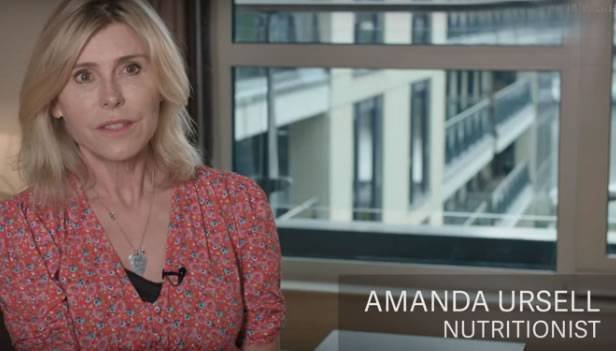New research finds 82% of parents with a child aged 1 to 4 expect childcare providers to seek expert nutritional advice, yet 79% of providers admit they fail to do so

The overwhelming majority of GB parents with a child aged 1 to 4 (82%) expect their childcare provider to seek expert advice on the latest nutritional guidance for young children, and 90% believe it is important that their childcare providers have a good general understanding of young children’s nutritional needs.1 Yet worryingly, further research found that 79% of childcare providers admit they are not receiving external nutrition advice, suggesting more must be done to address the gap.
In the recent YouGov survey, parents and carers of children aged one to four rated these nutritional capabilities as more important than various other aspects of nursery life, such as daily handovers 89%), good reports/learning journals given to parents (86%) and good nursery productions and shows (42%). They also felt they were more important than nursery facilities such as good reception areas (49%), good facilities for parents e.g. availability of buggy parking (64%) and even proximity to places (e.g. home or work) (86%). The survey showed little variation in the expectations of families of different social grades when it comes to the food being provided to their children1 – all parents had high expectations.
According to the National Child Measurement Programme, almost a quarter (23.4%) of children starting reception are not a healthy weight, being either overweight, obese, severely obese, or underweight.3 Other health concerns that can be related to diet include tooth decay, an entirely preventable concern that impacts 31 to 41% of five-year olds.4
In 2015, the Royal Society for Public Health recommended that nursery practitioners should have health-based conversations with parents, however the RSPH report Tackling the UK’s Childhood Obesity Epidemic noted that practitioners may lack confidence when it comes to raising sensitive issues regarding lifestyles in their work with young families.5
Commenting on the survey results, Annie Denny, Nutrition Development Manager at the Early Years Nutrition Partnership said:
“We’re impressed to see that parents and carers have high expectations about nutrition in nurseries and pre-schools as we believe childcare providers have a responsibility to get nutrition right in the early years. Our message is that by upskilling practitioners we can help them engage with parents on an exciting nutrition journey, that results in healthier and affordable meals in the setting, and likely inspiration and help for home too.”
According to the Royal College of Paediatrics and Child Health there has been minimal overall improvement in the proportion of children at a healthy weight in the past decade.4
Obese infants and children are likely to continue being obese during adulthood and are more likely to develop a variety of health problems as adults, including cardiovascular disease, insulin resistance (often an early sign of impending diabetes), musculoskeletal disorders (especially osteoarthritis – a highly disabling degenerative disease of the joints), some cancers (endometrial, breast and colon), and disability.6
Stacey Bailer, Regional Quality Manager at Fennies, a nursery chain operating across South West London, Surrey and Sussex, that is working with the Early Years Nutrition Partnership said:
“We want our practitioners to be able to support parents further in their understanding of the importance of a nutritionally balanced diet and direct them to the expert evidence led advice we will receive as a result of working with EYNP.
We hope other more nursery chains will join the EYNP movement as it is so beneficial for continuing professional development and most importantly to enhance outcomes for children. As childcare providers we believe we have a key role to play in introducing children to a wide variety of foods and establishing a pattern of regular meals and healthy snacks. Focusing on nutrition supports us in delivering the EYFS in a variety of ways as it helps children’s personal development and welfare.”
The survey was carried out on behalf of the Early Years Nutrition Partnership, an independent social enterprise created in partnership with the Pre-school Learning Alliance, the British Nutrition Foundation and Danone Early Life Nutrition. The EYN Partnership has a unique network of registered nutrition professionals (registered nutritionists and dieticians) who deliver nutrition support to nurseries and pre-schools that is tailored towards the demographic of each particular setting and community in which it operates.
About the 2018 YouGov Survey
All figures, unless otherwise stated, are from YouGov Plc. Total sample size was 10,942 adults, of which 800 were parents of children aged 1 to 4. Only those parents with children aged 1-4 were able to answer the questions within the survey, and only those using formalised childcare answered the questions regarding standards. Fieldwork was undertaken between 31st August – 6th September 2018. The survey was carried out online. The figures have been weighted and are representative of all GB adults (aged 18+).
About the 2016 Early Years Settings Survey
As part of a sector-wide review of the current provision of meals and snacks in early years settings, the Pre-school Learning Alliance and the London Early Years Foundation carried out a survey of nearly 700 early years settings across the country in April 2016. A summary of the results can be found at http://www.eynpartnership.org/sites/default/files/eyn_partnership_a_collection_of_views_from_partnerviews_october_2016.pdf
About the EYN Partnership programme
EYN Partnership resources are developed by the British Nutrition Foundation and the Pre-school Learning Alliance and fully support the nutritional requirements of Ofsted.
The EYN Partnership Chair is Neil Leitch, Chief Executive of the Pre school Learning Alliance. Also on the Board are Professor Judith Buttriss, Public Health Nutritionist and Director General of the British Nutrition Foundation and June O’Sullivan, MBE, Chief Executive of the London Early Years Foundation.
About the Pre-school Learning Alliance
The Pre-school Learning Alliance is the largest and most representative early years membership organisation in England. A registered educational charity, the Alliance represents 14,000 member settings and supports them to deliver care and learning to over 800,000 families every year. pre-school.org.uk
About the British Nutrition Foundation
The British Nutrition Foundation is a registered charity that provides impartial, evidence-based information on food and nutrition. The core purpose of the BNF is to make nutrition science accessible to all. The BNF does not lobby, endorse any products, engage in food advertising campaigns or allow commercial or political pressure to influence it when publishing or disseminating information. nutrition.org.uk
About Danone Early Life Nutrition
Danone Early Life Nutrition UK specialises in products and services for pregnant women, babies and young children. The aim of Danone Early Life Nutrition is to support informed nutritional choices in the critical first 1,000 days of life, from conception to toddlerhood, when health can be positively influenced for a lifetime. The heritage and expertise of Danone Early Life Nutrition is underpinned by an absolute commitment to the highest possible nutrition and quality standards. corporate.danone.co.uk/
About Danone Ecosystem
Danone Ecosystem is a global endowment fund, set up in 2009 to support social enterprises and initiatives worldwide. It aims to address a local need and strengthen and develop the activities of the partners in Danone’s ecosystem, by creating employment, developing skills and supporting the set-up of economic activities. The fund is part of Danone’s long-held belief and commitment to creating economic performance alongside social progress. The EYN Partnership is the first UK beneficiary. ecosysteme.danone.com
[1] YouGov, Public Survey ‘Childcare Providers and Nutrition’. Published 7th September 2018.
[1] National Survey on Early Years Nutrition 2016. The Pre-school Learning Alliance and the London Early Years Foundation. EYN Partnership: A Collection of Views from Partners. May 2016. Available at: http://www.eynpartnership.org/sites/default/files/eyn_partnership_a_collection_of_views_from_partnerviews_october_2016.pdf.
3 Health and Social Care Information Centre. National Child Measurement Programme – England, 2017-18 report. Available at: https://digital.nhs.uk/data-and-information/publications/statistical/national-child-measurement-programme/2017-18-school-year
4 State of Child Health. Early Years Indicators. Royal College of Paediatrics and Child Health. Available at: https://www.rcpch.ac.uk/resources/state-child-health-3-early-years-indicators
5 Tackling the UK’s childhood obesity epidemic. Royal Society for Public Health. https://www.rsph.org.uk/uploads/assets/uploaded/de21cde9-a77d-4ce6-bf9342c51f2beb08.pdf
6 Commission on ending childhood obesity. World Health Organisation. Commission on ending childhood obesity. Frequently asked questions. February 2018. Available at: http://www.who.int/end-childhood-obesity/faq/en/









